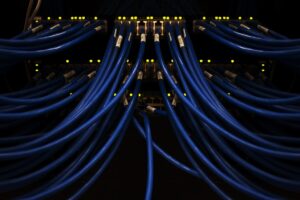Nebula, a character steeped in the rich tapestry of Marvel Comics, has emerged as one of the most intriguing figures within the expansive universe of superheroes and villains. Initially introduced as a formidable adversary, her character has undergone significant transformation, evolving from a villainous figure into a complex antihero. This evolution reflects broader themes of redemption, familial conflict, and the struggle for identity that resonate deeply with audiences.
Nebula’s journey is not merely one of physical battles but also an exploration of emotional and psychological depth, making her a compelling character in both the comics and the Marvel Cinematic Universe (MCU). Her striking appearance, characterized by her blue skin and cybernetic enhancements, immediately sets her apart from other characters. However, it is her backstory and relationships that truly define her.
As the granddaughter of the infamous villain Thanos and a member of the notorious group known as the Guardians of the Galaxy, Nebula’s narrative is interwoven with themes of loyalty, betrayal, and the quest for self-acceptance. This article delves into Nebula’s origins, her tumultuous relationship with Thanos, her evolution into an antihero, and her significant role within the MCU, ultimately highlighting her moral complexity and impact on those around her.
Key Takeaways
- Nebula is a complex and compelling character in the Marvel Universe, known for her moral ambiguity and evolution as an antihero.
- Nebula has a complex relationship with Thanos, her adoptive father, and has evolved from being a villain to an antihero in the Marvel Cinematic Universe.
- Nebula’s background and origin story are rooted in her tumultuous relationship with Thanos and her quest for redemption and revenge.
- Nebula has had a significant impact on the Guardians of the Galaxy, often challenging their moral compass and adding depth to the team dynamics.
- The future of Nebula in the Marvel Universe is promising, as she continues to evolve as a character and play a significant role in the ongoing storyline.
Nebula’s Background and Origin Story
Her Ruthless Upbringing
Born on the planet Luphomoids, Nebula is often depicted as a ruthless space pirate and mercenary. However, her lineage is what truly shapes her character; she is the adopted daughter of Thanos, one of the most powerful and malevolent beings in the universe.
A Life of Competition and Rivalry
Thanos’s influence on Nebula is profound and multifaceted. Raised in an environment where strength and ruthlessness were paramount, she was often pitted against her sister Gamora in a brutal competition for Thanos’s approval. This rivalry not only fueled her ambition but also instilled deep-seated feelings of inadequacy and resentment.
A Quest for Validation
The psychological scars from this upbringing are evident in Nebula’s actions throughout her story arc. Her quest for validation from Thanos drives many of her decisions, leading her down a dark path filled with betrayal and violence.
Nebula’s Complex Relationship with Thanos

The relationship between Nebula and Thanos is one of the most complex dynamics in the Marvel universe. Thanos, who views power as the ultimate currency, sees Nebula primarily as a tool to further his own ambitions. This utilitarian perspective leads to a toxic relationship characterized by manipulation and abuse.
Thanos’s treatment of Nebula is not merely that of a father figure; it is one marked by cruelty and domination. He subjects her to physical modifications, transforming her into a weapon rather than nurturing her potential as an individual. This dynamic creates a profound internal conflict within Nebula.
On one hand, she yearns for her father’s approval and strives to prove herself worthy of his legacy. On the other hand, she grapples with the realization that his love is conditional and rooted in power dynamics rather than genuine affection. This struggle culminates in moments of rebellion against Thanos, where she seeks to assert her independence and redefine her identity outside of his shadow.
The complexity of their relationship adds layers to Nebula’s character, making her motivations relatable and human despite her often villainous actions.
Nebula’s Evolution as an Antihero
| Stage | Characteristics | Actions |
|---|---|---|
| Origin | Trained assassin, loyal to Thanos | Served as a villain, fought against the Avengers |
| Redemption | Struggles with her identity, seeks redemption | Joins forces with the Guardians of the Galaxy, fights against Thanos |
| Antihero | Complex moral code, conflicted emotions | Works with the Avengers, makes morally ambiguous decisions |
Nebula’s transformation from villain to antihero is a testament to the nuanced storytelling present in Marvel Comics. Over time, she begins to question her allegiance to Thanos and the path she has chosen. This shift is particularly evident in her interactions with Gamora, who represents everything Nebula has been taught to despise: compassion, loyalty, and a sense of morality that transcends personal ambition.
Their fraught sisterly bond serves as a catalyst for Nebula’s evolution; through their conflicts and reconciliations, she starts to confront her own demons. As an antihero, Nebula embodies the struggle between good and evil that exists within all individuals. Her actions are often driven by self-interest or revenge, yet there are moments where she displays vulnerability and a desire for redemption.
For instance, during pivotal battles alongside the Guardians of the Galaxy, she demonstrates bravery and self-sacrifice that challenge her previous characterization as merely a villain. This duality makes Nebula relatable; she is not defined solely by her past but rather by her choices in the present.
Nebula’s Role in the Marvel Cinematic Universe
In the Marvel Cinematic Universe, Nebula is portrayed by actress Karen Gillan, whose performance has brought depth and nuance to the character. Introduced in “Guardians of the Galaxy” (2014), Nebula quickly became a fan favorite due to Gillan’s ability to convey both strength and vulnerability. The MCU adaptation retains many elements from the comics while also reinterpreting aspects of her character to fit within the cinematic narrative.
Nebula’s role in the MCU expands significantly across multiple films. In “Guardians of the Galaxy Vol. 2,” we see further exploration of her relationship with Gamora as they confront their shared past and their father’s abusive legacy.
This film highlights their complicated sisterly bond, showcasing moments of both conflict and reconciliation that resonate with audiences on an emotional level. Additionally, in “Avengers: Infinity War” (2018) and “Avengers: Endgame” (2019), Nebula’s character arc reaches new heights as she grapples with loyalty to her family versus loyalty to those who have become her friends.
Nebula’s Moral Ambiguity and Compelling Character Traits

One of Nebula’s most compelling attributes is her moral ambiguity. Unlike traditional heroes who operate within clear ethical boundaries, Nebula often finds herself navigating a gray area where right and wrong are not easily defined. Her motivations are complex; while she may engage in ruthless behavior, it is often rooted in a desire for autonomy or revenge against those who have wronged her.
This complexity invites viewers to empathize with her struggles while also questioning her choices. Moreover, Nebula exhibits traits that make her relatable beyond her villainous past. Her fierce independence is both admirable and tragic; she fights against a legacy that seeks to define her while simultaneously grappling with feelings of isolation.
Her journey toward self-acceptance is fraught with challenges but ultimately resonates with anyone who has ever felt like an outsider or struggled against familial expectations. This depth makes Nebula not just a character to root for but also one to understand on a fundamental human level.
Nebula’s Impact on the Guardians of the Galaxy
Nebula’s presence within the Guardians of the Galaxy significantly alters the dynamics of the team. Initially viewed as an outsider and potential threat, she gradually becomes an integral part of their collective journey. Her interactions with characters like Star-Lord, Drax, Rocket Raccoon, and especially Gamora add layers to their relationships, showcasing how trust can be built even among those with tumultuous pasts.
Her evolution from adversary to ally serves as a powerful narrative device that emphasizes themes of redemption and forgiveness within the Guardians’ story arc. For instance, during critical moments in battle or when facing existential threats like Thanos, Nebula proves herself as a valuable asset to the team. Her willingness to fight alongside them despite her complicated history illustrates that one’s past does not have to dictate their future actions or alliances.
The Future of Nebula in the Marvel Universe
As Marvel continues to expand its cinematic universe through new films and series on Disney+, the future of Nebula remains an intriguing prospect for fans and creators alike. With ongoing developments in storytelling techniques—such as multiverse narratives—there are numerous possibilities for how Nebula’s character could evolve further. Given her rich backstory and complex relationships, there is ample room for exploration regarding her identity beyond being Thanos’s daughter or Gamora’s sister.
Moreover, as audiences become increasingly drawn to stories featuring strong female characters who defy traditional archetypes, Nebula stands poised to take on more prominent roles in upcoming narratives. Whether through solo projects or continued involvement with the Guardians or other Marvel heroes, there is potential for deeper exploration into themes such as redemption, identity formation, and familial bonds that resonate universally. In conclusion, Nebula’s journey through the Marvel universe encapsulates themes of struggle, resilience, and transformation that resonate deeply with audiences across various media platforms.
Her evolution from villainy to antiheroism reflects broader societal narratives about identity and redemption while also providing rich material for future storytelling within this beloved franchise.
If you are interested in exploring concepts and institutions within Indian society, you may want to check out the article Indian Society: Exploring Concepts and Institutions. This article delves into various aspects of Indian culture and society, providing valuable insights into its rich history and traditions. Additionally, if you are looking to add some greenery to your indoor or outdoor spaces, you might enjoy reading about The Best Succulents for Indoor and Outdoor Spaces. And for those interested in philosophy, the article Russell: Philosophy of Language and Knowledge offers a deep dive into the philosophical ideas of Bertrand Russell.





















+ There are no comments
Add yours